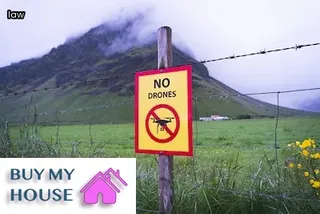Understanding squatter's rights in Washington is a complex issue that requires thorough knowledge of the state laws. It is important for landlords and homeowners to understand their legal rights when it comes to evicting squatters from their property.
In Washington State, a squatter is defined as someone who lives on another person’s land without permission from the owner or without an express agreement with the owner. Squatters may have certain rights if they can prove that they have been living there for a certain amount of time, so it is important for landlords to be aware of these laws.
Squatters also have limited protections against eviction, as landlords must follow specific procedures to ensure that the eviction is done legally. This includes giving proper notice, following court orders, and providing proof that the tenant has been served with all necessary paperwork related to the eviction.
Landlords should also be aware that squatters may be able to file a claim against them if they believe they were wrongfully evicted. Knowing the ins and outs of Washington State's squatters' rights can help landlords protect their property and ensure that any evictions are done legally and according to state law.

Adverse possession, also known as squatter's rights, is a legal concept in Washington State that allows individuals to establish ownership of land they occupy and use, even if they do not own the property. The concept of adverse possession has been around for hundreds of years and is based on the idea that someone who has held a possessory interest in land can gain title if certain elements are met.
In Washington, these elements include open, notorious, exclusive, and continuous occupancy for 10 years or more without permission from the rightful owner. An understanding of these legal parameters is essential for any individual or business looking to legally evict squatters from their property.
Evicting squatters may require filing a lawsuit for ejectment or trespass and carefully following the laws set forth by Washington State. In order to properly protect one's property interests in the state of Washington, it is important to familiarize oneself with relevant statutes concerning adverse possession claims and eviction procedures.
Squatting and trespassing are two distinct legal concepts. Squatting is the act of taking possession of an abandoned or foreclosed property without permission from the owner.
It can also refer to a tenant who remains in a leased residence after the lease has expired, without the landlord's permission. Trespassing, on the other hand, is entering a property that belongs to someone else without their permission.
Both squatting and trespassing are illegal in Washington State, however there are important differences between them and how they should be handled legally. Squatters may be able to gain rights over time if they have been living on a property for extended periods of time, while trespassers are typically removed immediately by law enforcement.
It is important to understand these distinctions when attempting to evict someone from your property as laws vary by state.

In Washington State, a squatter is defined as someone who has illegally occupied another person's property without consent. Squatting can involve occupying residential or commercial real estate without a lease or rental agreement, living in an abandoned building, or camping on another person's land.
Squatters often take advantage of the fact that they are not named on the deed to the property and do not pay rent, but may still be able to establish a legal claim to it over time. Generally speaking, if someone has been claiming ownership of a property through adverse possession for seven years or more, they could potentially be considered a squatter under Washington law.
It is important for landowners to understand their rights and responsibilities when dealing with squatters so that they can legally remove them from their property.
It is important to understand the distinction between a tenant and a trespasser in Washington State. A tenant is an individual with a legal right to occupy a property, while a trespasser is someone who has no legal right to be on the property.
In order to legally evict a squatter in Washington, it is necessary to first recognize when an occupant has become a trespasser. To make this determination, one must examine whether the occupant has been given permission to be on the property or if they have established any sort of tenancy by paying rent or otherwise exhibiting an intent to remain on the property for an extended period of time.
When these criteria are not met, it is likely that the squatter has become a trespasser and can be evicted from the premises.

In Washington State, 'color of title' is a legal phrase used to describe the rights of squatters in certain situations. When a squatter has a claim of 'color of title', they are legally able to possess or occupy property without being considered a trespasser.
This term applies when the person claiming ownership has an official-looking document that appears to be genuine, even though it may not actually be valid. This could include deeds, leases, mortgage documents or other documents that appear authentic but do not confer any real legal rights.
In order for an eviction to be legal and binding, the court must determine if the squatter holds 'color of title'. To do this, the court will consider evidence such as whether or not the squatter has been living in the property for an extended period of time, if they have made improvements to it, if there was a written agreement between them and the rightful owner and if there was any form of payment made by either party.
The court must also examine any financial records or contracts associated with the situation to determine who has true ownership of the property. If it is found that 'color of title' does exist, then the squatters must be legally evicted according to Washington state law.
When it comes to squatters in Washington State, there are certain rights that need to be taken into consideration when analyzing whether they should pay property taxes. Squatters may not have a legitimate legal claim to the property but can still establish “adverse possession” if they continuously occupy the land for a period of time.
Under this arrangement, the squatter may be liable for paying taxes on the property depending on how long they have been living there. Adverse possession requires that the squatter must show proof of exclusive use, non-permissive use, and continuous occupancy over a period of 10 years or more in order to gain title and potentially become liable for taxes.
However, squatter’s rights do not supersede those of the rightful owner – so it is important to consider what steps to take in order to legally evict them from your land or property. It is best practice to consult with an attorney who specializes in real estate law before taking any action regarding a squatter situation as eviction proceedings often require specific notices and court orders.
In cases where squatters are able to establish adverse possession of the land, owners should seek legal counsel on how best proceed with collecting any due taxes from them.

In order for a squatter to have a claim to a property, there are certain requirements that must be met. In Washington State, the squatter must demonstrate proof of possession of the property by living on it, paying taxes and utilities regarding the property, or making necessary improvements to the property.
Furthermore, they must also prove that they had no knowledge that they were trespassing on another’s land. Lastly, they must show continuous possession of the land for at least eight years before any legal action can be taken against them.
This can be done through evidence such as rent receipts and utility bills in their name or other documents proving occupancy and financial responsibility for the property. It is important to note that squatters may not use their rights to take over property for malicious purposes or otherwise cause harm to another party.
Understanding these laws can help ensure that all parties involved are protected under state law.
The issue of dealing with squatters on your property can be a tricky one, as it is important to understand Washington State squatter's rights before attempting to legally evict them. In order to legally remove a squatter from your property, you must first be able to prove that the individual has been living there without your permission and for an extended period of time.
You should also be ready to provide evidence that you are the rightful owner of the property or have the right to possess it. Once this is established, you can begin the legal process of eviction.
This typically requires filing a complaint in court against the individual which will result in a hearing before a judge who can make a ruling regarding whether or not they must vacate the premises. The court may also require payment of back rent or damages incurred by their presence on your property prior to their departure.
It is important to ensure that all steps are taken correctly when establishing strategies for removing squatters from your property in Washington State, as failure to do so could lead to costly mistakes and delays in resolving the situation.

Protecting your home from unwanted intruders is extremely important to ensure your safety and property rights. As a homeowner, it is essential to understand Washington State squatter's rights in order to legally evict them.
In Washington State, squatters can acquire legal rights to the property if they are able to prove that they have openly occupied the property for a certain period of time and that they intended to make the property their own. To protect your home from these unwanted intruders, it is important to take preventative measures such as keeping up with regular, visible inspections of the property and securing all doors and windows.
Additionally, you should also make sure that all paperwork associated with the property is up-to-date and in good standing. If you do find someone on your property without authorization, you can pursue legal action by filing a complaint with the local law enforcement agency or through civil court proceedings.
Following these steps will help ensure that you are able to protect your home from any unwelcome occupants.
Evicting a squatter from your property can be a tricky and time-consuming process, as Washington State law outlines specific rights for squatters. It is important to first understand the laws surrounding squatting in order to determine the most effective method for eviction.
Squatters gain rights after living on the property for a certain amount of time, so legal action must be taken quickly in order to protect the owner's rights. In Washington State, it is illegal for squatters to break into an abandoned property or use force to remain on someone else's land; however, if they are allowed access by the owner and remain on the premises for more than 30 days, they may be able to make a claim of adverse possession.
This means that they may have some legal rights to stay on the land and receive compensation if they are evicted. As such, owners should always consult with an attorney before attempting to evict a squatter in order to ensure that all steps taken are in accordance with state law.
If all other avenues fail, then owners can file an Unlawful Detainer Action with their county court and request a hearing date. The court will review both parties' claims and ultimately decide whether or not eviction is appropriate.
Ultimately, understanding Washington State's laws regarding squatting is key when it comes to effectively evicting someone from your property.
In Washington State, squatters have a number of rights that must be respected when trying to legally evict them. Squatters in Washington are protected by the Residential Landlord-Tenant Act and the Landlord Mitigation Program.
This means they have certain rights when it comes to living on another person's property without their permission. These include: being able to stay on the property until they are legally evicted, being given reasonable notice before eviction, having a right to receive returnable deposits, and having access to essential services while they remain on the property.
It is important for landlords who wish to evict squatters from their properties to understand these rights before taking any action. Understanding the laws surrounding squatters' rights can help ensure that an eviction is carried out in accordance with Washington state laws.

Yes, it is possible to evict a squatter in Washington state. Squatters are people who occupy a property without the consent of the legal owner. In Washington state, there are specific laws governing how to legally evict squatters.
It is important for property owners to understand their rights and obligations when dealing with squatters. The first step is to give a written demand for the squatter to leave, either personally or by certified mail. If the squatter ignores this request, the landlord can then file an unlawful detainer lawsuit in court.
This is an action that seeks possession of the premises. The landlord must also prove they have legal title to the property and that they have not abandoned it or given permission for someone else to take possession of it. The court will issue an eviction order if these requirements are met.
Landlords should also be aware that even after a squatter has been evicted, they may still be entitled to receive back rent from them for any period during which they were in possession of the premises. Knowing Washington state's laws regarding squatters and following proper legal procedures can help landlords protect their rights and avoid costly disputes down the road.
Evicting a squatter in Washington State can be done in a relatively short amount of time, though it depends on the specific situation. Generally speaking, squatters must first be served with a notice of eviction or a court order to vacate the premises.
From there, Washington State law allows for the landlord to file an unlawful detainer action with the Superior Court to evict the squatter from the property. If successful, this process typically takes between two and four weeks depending on court scheduling and other factors.
It is important for landlords to understand their legal rights when dealing with squatters and follow all of their state's laws regarding eviction proceedings. A lawyer may also be able to provide assistance during this process in order to ensure that everything is done legally and efficiently.
If you are experiencing issues with squatters on your property in Washington State, make sure you do your research and consult an attorney if necessary to understand your rights as a landlord and how best to proceed with any eviction proceedings.
In Washington state, a tenant without a lease can be legally evicted. Squatter's rights are determined by the landlord-tenant act, which is different from state to state.
In Washington, for example, the state law dictates that a tenant who has occupied a property for 21 days or more without payment of rent can be considered a squatter and evicted according to the laws of the state. To legally evict someone who is occupying your property without a lease, you must first give them written notice that they have 14 days to move out.
If they fail to leave within this time period, then you can file an eviction lawsuit with the court. The judge will hear both sides of the story and make a ruling based on the evidence presented.
If it is determined that the tenant is illegally residing on your property, then you may receive an order of eviction from the court. Once you have received this order, you can contact local law enforcement who will assist in enforcing it and help remove any individuals still present on your property.